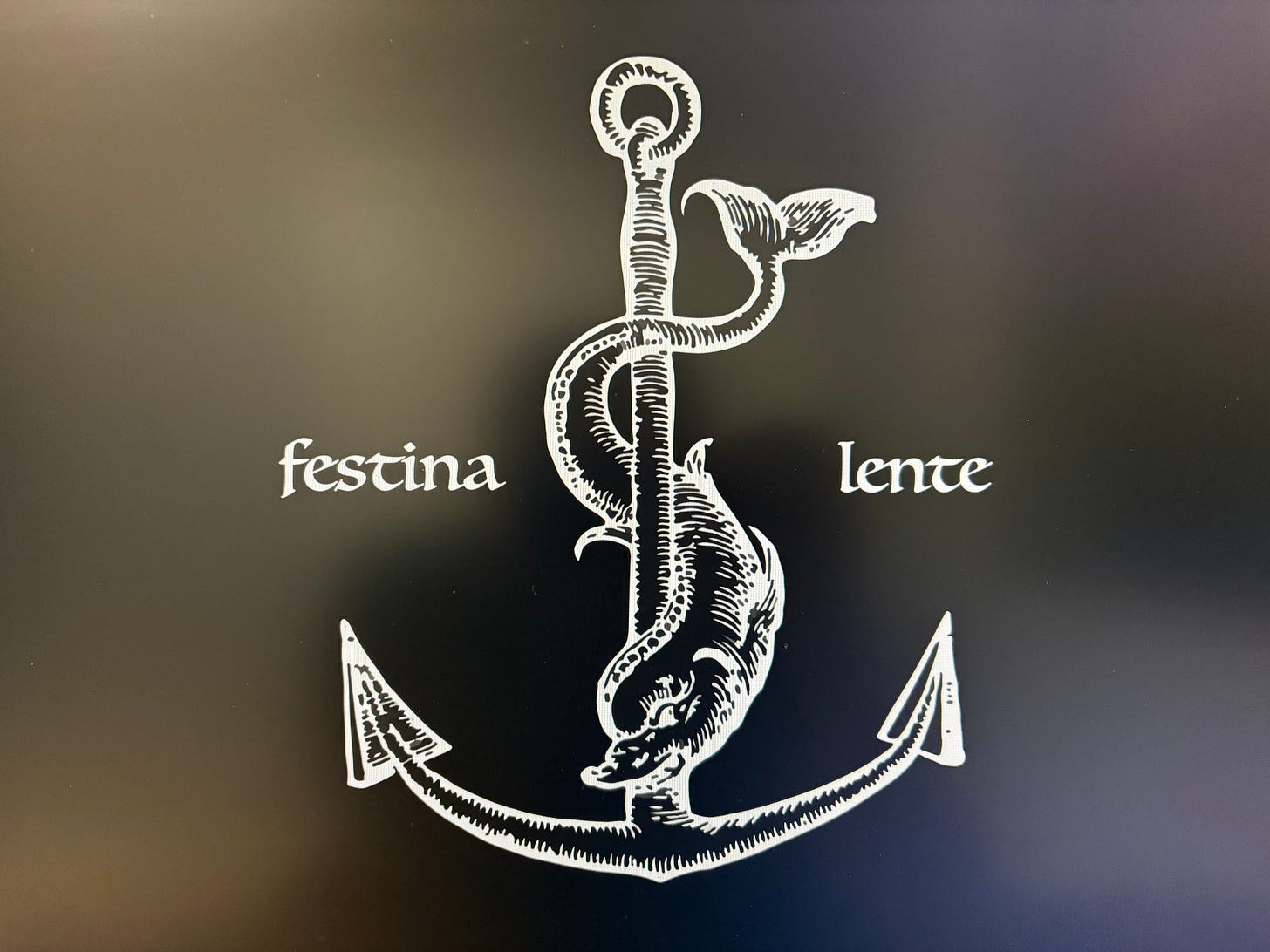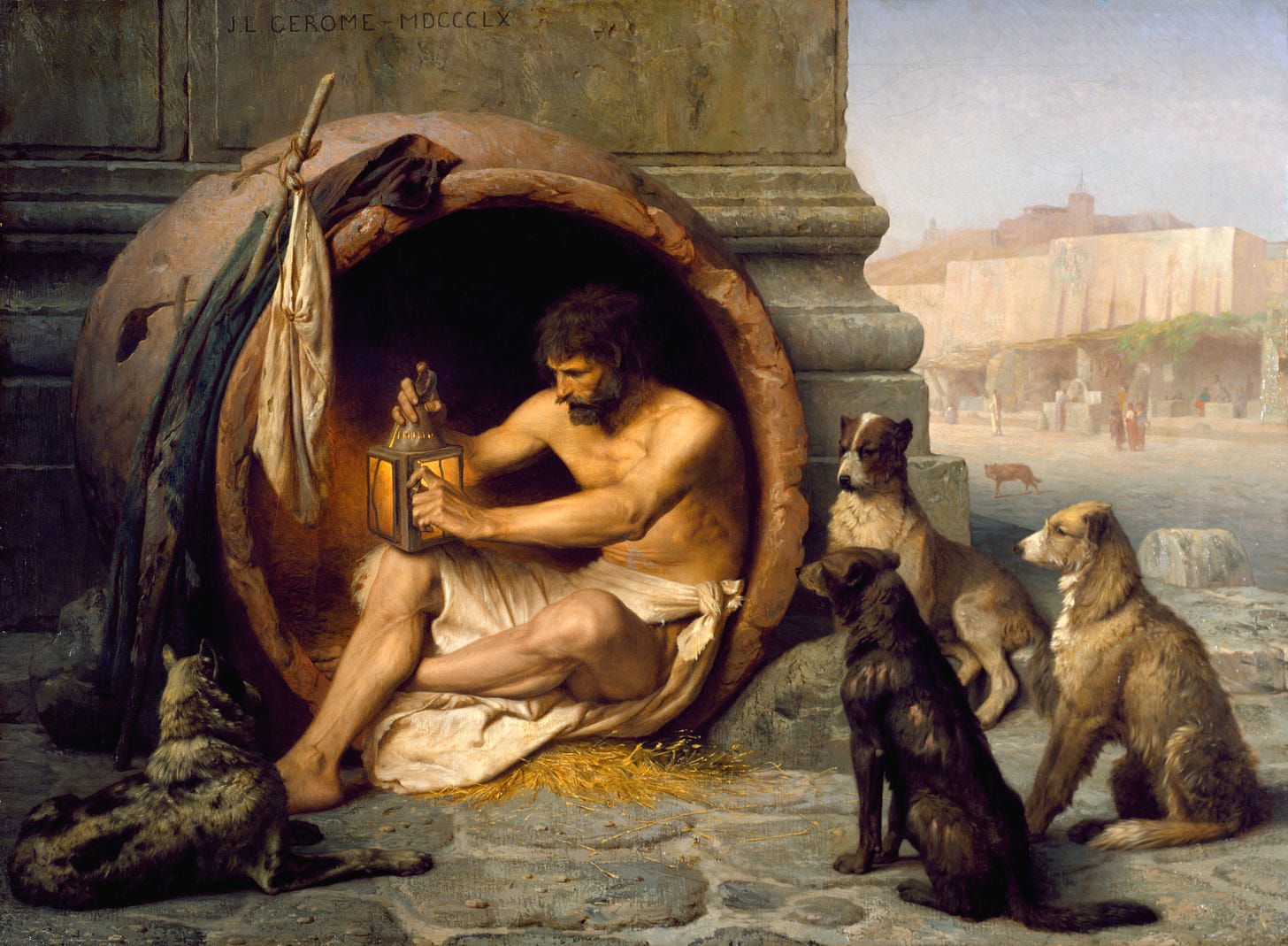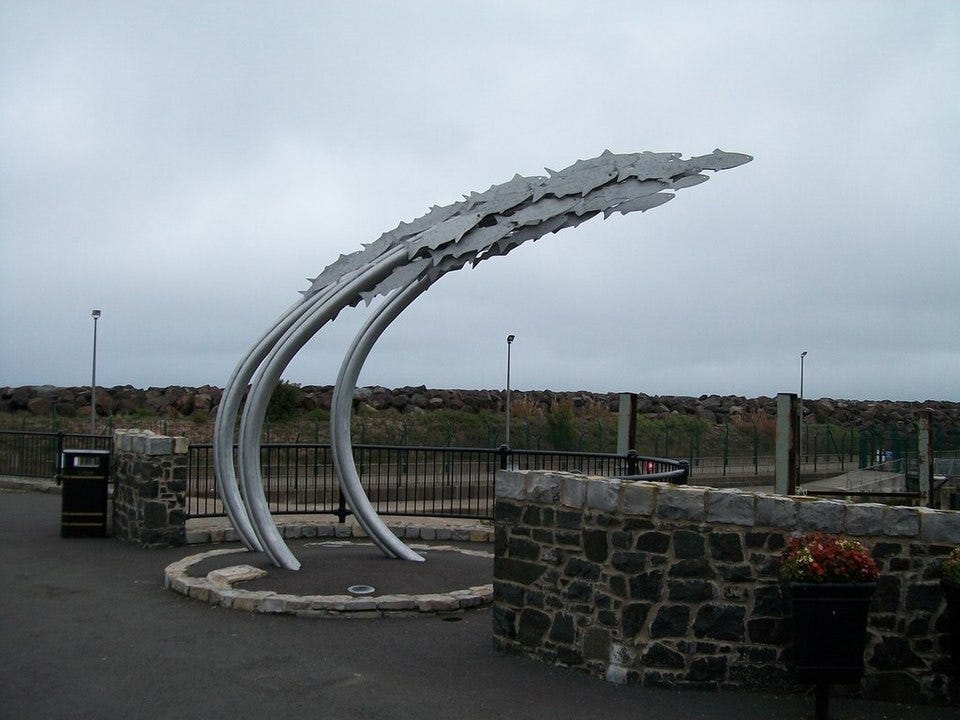Festina Lente
Reclaiming an antidote to panic-stricken times
Panic! at the doctor’s office.
Panic! at the grocery store.
Panic! at the disco.
If I could sum up all news about American culture, AI, geopolitics, healthcare, and economics into a single word, it’s panic! The word is so…energizing that it cannot even be written without an exclamation point, as a 2000s pop-punk band knew too well.
A responsible citizen must panic! If you are not stricken by grief, shock, and guilt every time you check the news, you must be a sociopath.
But even the ignorant sociopath isn’t free of panic! If you don’t rise, grind, and seize every opportunity before you, another hustler will take it, and you’ll be a downtrodden loser.
Panic! That jolt of fear should inspire action and urgency, neither of which is bad. But the rise of burnout, declining mental health, workaholism, and disillusionment in participating in a vapid, competitive society has made us skeptical of urgency.
This skepticism has spawned a new age of thought leaders, influencing us to “embrace slowness,” “do less,” and focus on “the essentials.” None of this is bad advice, yet this slow approach to life might leave us bored, under-challenged, and sedentary, leaving our goals stagnant as we invest energy into reactivity and perpetual optimization.
We find ourselves at this crossroads of contradictions: go fast while slowing down, act urgently but don’t rush. Is the slow group or the fast group right? Should we be the tortoise or the hare?
But what if there wasn’t a dichotomy? An ancient paradox suggests that we may not need to choose, even if the key to unlocking this paradox is rusted.
The Paradox
Emperor Caesar Augustus detested rash decision-making from his military commanders and is quoted as saying, “Nothing is less becoming in a well-trained leader than haste.” The calm confidence of a leader is not achieved by overreactivity. Yet, a leader cannot sit on their haunches. So, Augustus was famous for the paradoxical adage festina lente, meaning “make haste slowly.”
Like an out-of-touch manager berating their team to “Panic! But don’t stress,” Augustus’s oxymoron must’ve been infuriating to his reports. Yet, festina lente contains wisdom sorely needed in contemporary times. For the past year, I’ve made this a constant reminder.
The Venetian printer Aldus Manutius stamped a dolphin-and-anchor emblem into the editions he printed to signify the balance between boundary-pushing (the haste of the dolphin) and rigorous scholarship (the stabilizing slowness of the anchor). My pretentious computer background reminds me of this aspiration each day: not to get caught up in the noise of the moment—office politics, false fires, or competitor news—but to keep chipping away at the nonurgent but important.
The Stoics supported a similar thread in their philosophical musings, such as Seneca’s famous line: “It is not that we have a short time to live, but that we waste a lot of it.” Festina lente suggests a balanced strategy—a bias for urgency with thoughtful intention. Don’t waste time or delay starting for the perfect moment. But don’t overreact to events and operate without a deliberate plan. Don’t go too fast to be reckless, nor too slow to be stagnant.
While festina lente is interesting in theory, I’ve found it difficult to practice. Of course, the discipline to tune out the noise and focus on the signal is hard, but the real challenge is more fundamental: a belief in the bigger picture.
The Foundation
Any psychology 101 course will discuss the marshmallow test. At Stanford in the 1960s, children were given a choice: receive one marshmallow immediately or wait fifteen minutes to receive two marshmallows, testing their ability to delay gratification. The experiment concluded that people better at delayed gratification scored higher on tests, had healthier lifestyles, and maintained a greater sense of self-worth. In other words, those who can wait for a reward end up wealthier, healthier, and happier.
Festina lente parallels delayed gratification. If we can avoid a short-term reward and hold out for a larger future prize, we can make haste slowly. However, what both the ancient proponents of festina lente and researchers on delayed gratification seem to neglect is one’s faith in the future. For a Roman commander not to make an impulsive decision to flee a battlefield, he must have faith in the strategic outcome of holding the line. For children not to seize the marshmallow before them, they must trust that waiting fifteen minutes will yield a second marshmallow.
I’ve long been a proponent of the financial independence movement—living frugally and investing one’s savings in index funds so compound interest can form a future nest egg. At 32, I am thankful that 22-year-old me invested a quarter of his paycheck into ETFs each month for a decade. I delayed some near-term pleasures on the belief that I could better use these finances in the future. However, I could only stick with this plan because I believed in the US stock market.
I did not have certainty in the economy—nobody does—but I had faith in it. In today’s world, faith doesn’t carry positive connotations. It gets associated with dogma and mystical thinking. It is viewed in direct contrast with the rational systems and institutions that make our world function: science, technology, and the lived experience of our increasingly global society. Making decisions based on faith, not data, is blasphemous at any reputable research institution or Fortune 100 company. Yet, the fuel that guides any meaningful endeavor is a belief in some future vision.
To escape panic, we must make haste slowly. But to make haste slowly, we need faith. When faith is low, we collapse into cynicism.
The Epidemic
The world is a dark place. As forest fires devastate thousands of acres, militias maul people in the streets, and consumers take on more debt than they can ever pay, holding out hope for a better future sounds naïve, if not absurd. Among so many other problems, we are experiencing an epidemic of cynicism. How can we trust institutions that have continually failed us?
Cynicism has its place. As a philosophical movement originating in ancient Greece, Cynicism rejected social constraints so that its followers could live more simply and align with their natural tendencies. By the 19th century, however, any good intentions of capital-C Cynicism were overpowered by negative connotations, leading to our modern interpretation of lower-C cynicism: disbelief in a better future.
Lower-C cynicism emerges when trust is low. Confidence in the good intentions of others dwindles, and people become skeptical of anyone selling futures. We don’t believe the promise of a second marshmallow when the hand that offers it has slapped us in the face. This cynicism is exacerbated among marginalized groups, whom institutions have systemically betrayed through extraction and exploitation. For someone living paycheck to paycheck or within an unstable society, living for the future might mean failure, hunger, or deportation. Urgency becomes a rational response—act now; seize the opportunity before it is stripped away! When the hopeful and trusting are punished, we abandon notions of the future, opting for the here and now. Why invest a dollar in a market that won’t exist in ten years when we could buy vape juice to get through the day?
When cynicism infects the spirit, people lose the ability to take the necessary steps for a better future and to imagine that a better future is even possible. Declining birth rates, retirement contributions, and religious affiliation are all signs of growing disinterest in the future. We’re in a crisis of faith.
Without faith, festina lente has no fuel.
The Leap
Whenever I hear the word “faith,” I remember a song we recited during choir at Catholic school masses: “You gotta have F-A-I-T-H, you gotta have faith!” While it may sound trite, this simple verse contains the antidote to cynicism. One cannot know that God exists, so the very basis of religion is based on faith. One must believe, without evidence—contrary to all the conditioning of our scientific training and data-driven methodologies—that there’s something greater than this world.
Religion isn’t required to have faith, but it’s a means to hone that skill. Given my upbringing, I developed, relatively early on, the muscle of faith. That does not mean my faith in things always panned out. I gave trust to people and institutions that betrayed it. My naivety cost me time, money, and emotional well-being multiple times. Had I been more discerning and slower to trust, I likely would not have gotten hurt, scammed, or bamboozled. When people raised with faith see that faith betray them, it’s only natural to put up a shield of protection and crawl into a shell of cynicism.
But that shell is hollow. It keeps us stuck, hopeless, and bored. Yet, the way out of that shell doesn’t require some grandiose act of awakening—leaving a relationship, changing careers, or joining a cult. It’s like starting over again at the gym. After a year of not lifting, we can’t expect to load the barbell with heavy plates and squat what we used to.
Reclaiming faith follows a similar journey. Like salmon throwing themselves upstream, we must take a leap of faith. But that leap needn’t be massive. Start with small hops—develop trust in yourself by sticking to a simple schedule. Share your fears first with a journal, then with a family member, then with a friend. Take a chance and meet someone new in your community. Each jump strengthens our faith muscles.
The world may be dark, but within it, we can create light. Against all the odds, we must learn to believe that a better future is possible, especially when our actions today will not let us grasp it. With faith, we can make haste slowly.







Good read
Love this!